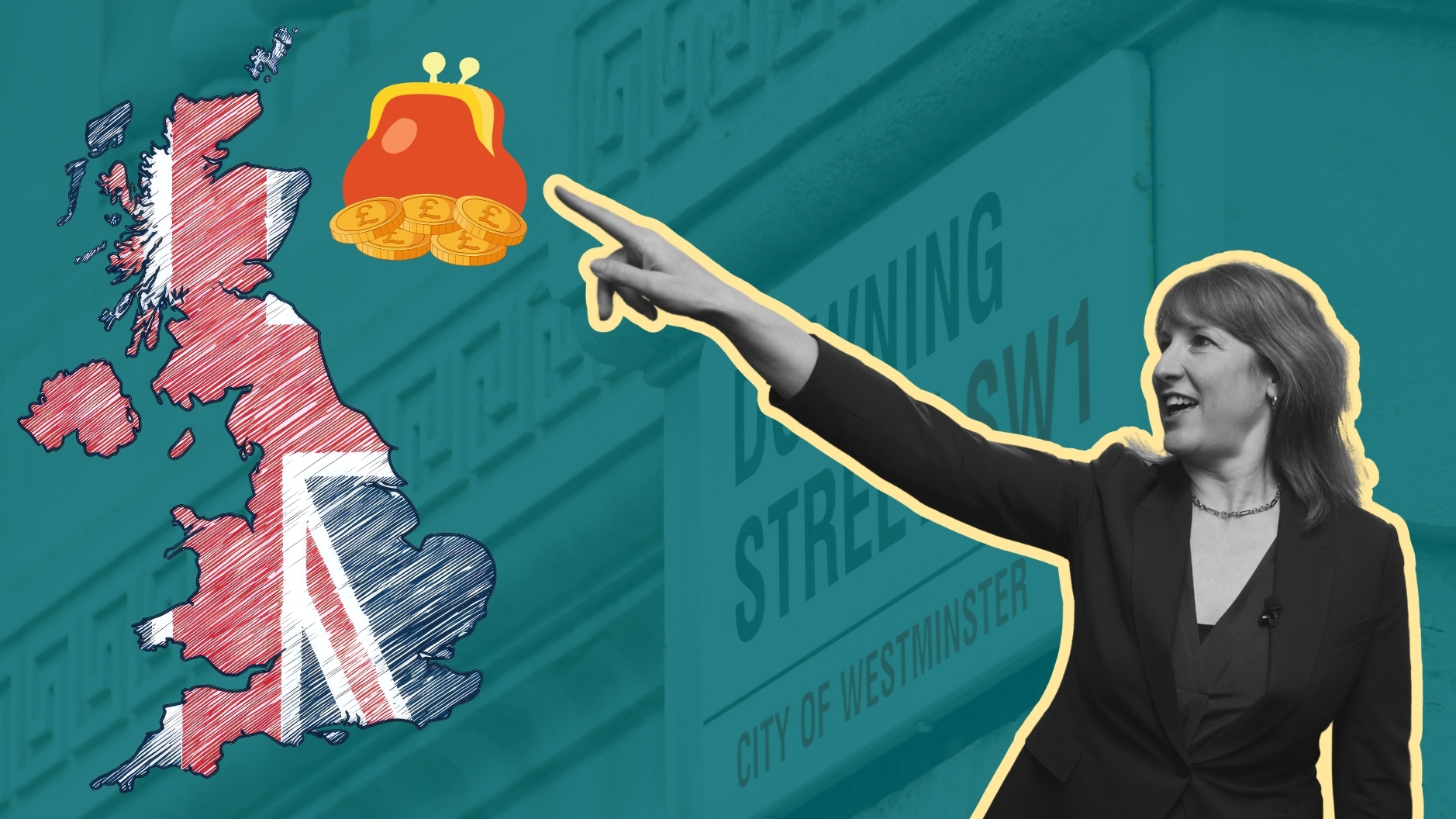Why space investments are the way to go for investors
Space investments will change our world beyond recognition, UK investors should take note


Get the latest financial news, insights and expert analysis from our award-winning MoneyWeek team, to help you understand what really matters when it comes to your finances.
You are now subscribed
Your newsletter sign-up was successful
Want to add more newsletters?
In the wake of Jeremy Hunt’s Budget last week a small group of people on one of the UK’s most northerly islands were celebrating. Unst, part of Shetland, is home to the UK’s most northerly cafe, postbox and cake fridge (this is a Shetland thing). It also boasts the advanced construction site that will be the UK’s most northerly spaceport. In his Budget Hunt awarded that port, SaxaVord, £10million.
More good news came this week when HyImpulse, one of two German firms contracted to launch from SaxaVord, was granted a licence to do so by the UK Civil Aviation Authority (SaxaVord itself was awarded its own spaceport licence last year). HyImpulse should now see its first hybrid rocket, designed to use both liquid and solid propellants (a combination that should make it simple, safe and easy to control), launch later this year. If it works, says HyImpulse’s CEO, it will be a “gamechanger in getting small satellites into orbit”.
This might all sound a little niche. It isn’t. There are a good 8,000 satellites in orbit around the Earth at present and there should be more than 30,000 up within the next five years. The space race is partly about who gets to get those satellites up there. Being the UK’s premier vertical launch site and having clients such as HyImpulse is a big deal.
Try 6 free issues of MoneyWeek today
Get unparalleled financial insight, analysis and expert opinion you can profit from.

Sign up to Money Morning
Don't miss the latest investment and personal finances news, market analysis, plus money-saving tips with our free twice-daily newsletter
Don't miss the latest investment and personal finances news, market analysis, plus money-saving tips with our free twice-daily newsletter
You’ll be wondering what all those satellites do. The answer, as Tim Marshall points out in his must-read book The Future of Geography, is almost everything. Think of both low-orbit and geosynchronous orbit (higher up – and where satellites turn at the same speed as the Earth) as part of our geography (in the same way as the oceans) and the satellites themselves as part of our critical infrastructure (in the same way as our Earth-based transportation and energy systems).
They monitor weather and climate, they collect and distribute vast amounts of data, run your GPS – and that of the tankers moving goods and oil around the world, with applications so diverse and embedded in our lives (I’m tracking my children on their way home from school via a satellite-enabled app as I type) that we’d be paralysed without them.
They relay a rising proportion of our communications, service other satellites and even clean up space by grabbing bits of debris out of orbit. And that’s all before we start talking about the potential for our new geography to change defence (lasering each other’s satellites from space or from the ground, managing drones, spying, and so on). In future, we will colonise the Moon; we will mine asteroids for precious metals; and we may well get free and infinite solar energy beamed from space – just not yet. However, to dwell on the “not yet” is to miss the now – and how dependent on space we are already. Were the satellite network suddenly to disappear, says Marshall, it would be an “almighty blow” to us all.
How to invest in SpaceX
So how can you get access to your own small bit of space? The simplest way is to look to the big UK-listed trusts that hold stakes in Elon Musk’s unlisted SpaceX such as Edinburgh Worldwide Investment Trust (LSE: EWI), where it makes up 10.8% of the assets; Scottish Mortgage Investment Trust (LSE: SMT, 4%); Baillie Gifford US Growth Trust (LSE: USA, 7.8%); or the Schiehallion Fund (LSE: MNTN, 7.2%).
SpaceX makes much of its very exciting plans for the future (the ultimate goal being to enable people to live on other planets), but for the moment, says Baillie Gifford, “makes most of its revenue from launching satellites into orbit for government and corporate customers”. Holding a trust that holds SpaceX, then, gives you access to the sharp rise in satellite launches. Which one? In an interview last week Nick Greenwood, manager of the MIGO Opportunities Trust, suggested Schiehallion, less for the exciting slice of space than for the massive discount to net asset value, or NAV (45%), at which it has been trading.
There was a time a year or so ago when the market wasn’t sure it could trust the stated NAVs of trusts holding early stage unlisted investments, says Greenwood. But that time has passed: they have been checked and checked again. There is also more visibility within the portfolios of who the winners and losers are likely to be.
But if you are going down that route – early stage private investments held inside a trust trading at a whopping discount – you might as well go full space with the Seraphim Space Investment Trust (LSE: SSIT), on a discount to NAV of 46%. I wasn’t keen on it when it launched in 2021. I thought it was a bit too early into the sector; that its investments were overpriced; and that its performance fee was, and remains, too high. But today, the case for space is largely made. The main companies have real momentum behind them (the top five now make up over 50% of the portfolio), and the trust is much cheaper. The share price has fallen by around 50% since the launch.
Risks remain. The market capitalisation is tiny (£124million), not enough for the wealth managers to buy in; the portfolio is very concentrated (17 companies); and there is always risk in investing in a portfolio of unlisted minority shareholdings. Remember, this isn’t just space investment, it is private-equity space investment.
But it is almost worth taking a small holding just to make sure you keep an eye on the sector. And at the very least you should explore the portfolio. If you are wondering what space can do for us, a look at the likes of Taranis, which can provide farmers with “submillimeter image resolution of every acre”; Altitude Angel, which is building cloud technology to integrate drones into global airspace; and Astroscale, which is working on a prototype to refuel military satellites while in orbit, should give you a clue.
This article was first published in MoneyWeek's magazine. Enjoy exclusive early access to news, opinion and analysis from our team of financial experts with a MoneyWeek subscription.
Get the latest financial news, insights and expert analysis from our award-winning MoneyWeek team, to help you understand what really matters when it comes to your finances.

-
 What do rising oil prices mean for you?
What do rising oil prices mean for you?As conflict in the Middle East sparks an increase in the price of oil, will you see petrol and energy bills go up?
-
 Rachel Reeves's Spring Statement – live analysis and commentary
Rachel Reeves's Spring Statement – live analysis and commentaryChancellor Rachel Reeves will deliver her Spring Statement today (3 March). What can we expect in the speech?
-
 Three Indian stocks poised to profit
Three Indian stocks poised to profitIndian stocks are making waves. Here, professional investor Gaurav Narain of the India Capital Growth Fund highlights three of his favourites
-
 UK small-cap stocks ‘are ready to run’
UK small-cap stocks ‘are ready to run’Opinion UK small-cap stocks could be set for a multi-year bull market, with recent strong performance outstripping the large-cap indices
-
 Hints of a private credit crisis rattle investors
Hints of a private credit crisis rattle investorsThere are similarities to 2007 in private credit. Investors shouldn’t panic, but they should be alert to the possibility of a crash.
-
 Investing in Taiwan: profit from the rise of Asia’s Silicon Valley
Investing in Taiwan: profit from the rise of Asia’s Silicon ValleyTaiwan has become a technology manufacturing powerhouse. Smart investors should buy in now, says Matthew Partridge
-
 ‘Why you should mix bitcoin and gold’
‘Why you should mix bitcoin and gold’Opinion Bitcoin and gold are both monetary assets and tend to move in opposite directions. Here's why you should hold both
-
 Invest in the beauty industry as it takes on a new look
Invest in the beauty industry as it takes on a new lookThe beauty industry is proving resilient in troubled times, helped by its ability to shape new trends, says Maryam Cockar
-
 Should you invest in energy provider SSE?
Should you invest in energy provider SSE?Energy provider SSE is going for growth and looks reasonably valued. Should you invest?
-
 Has the market misjudged Relx?
Has the market misjudged Relx?Relx shares fell on fears that AI was about to eat its lunch, but the firm remains well placed to thrive